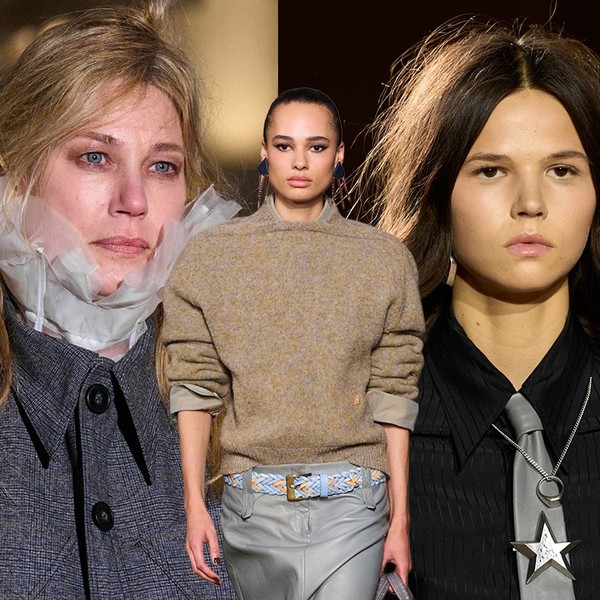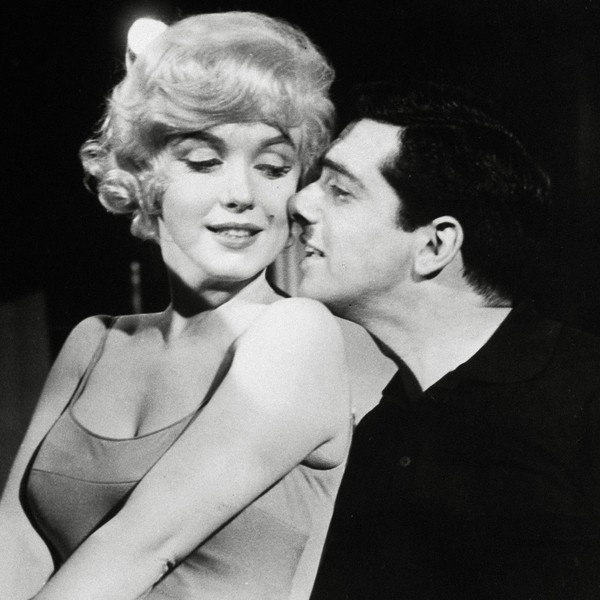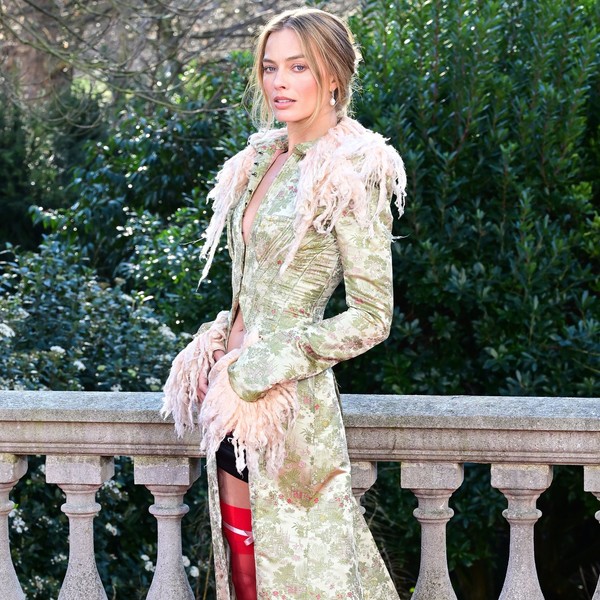When Being Yourself Isn’t Considered “Hot” Anymore
"Honest to god, I do wonder if he would have dumped me if I had long hair.”
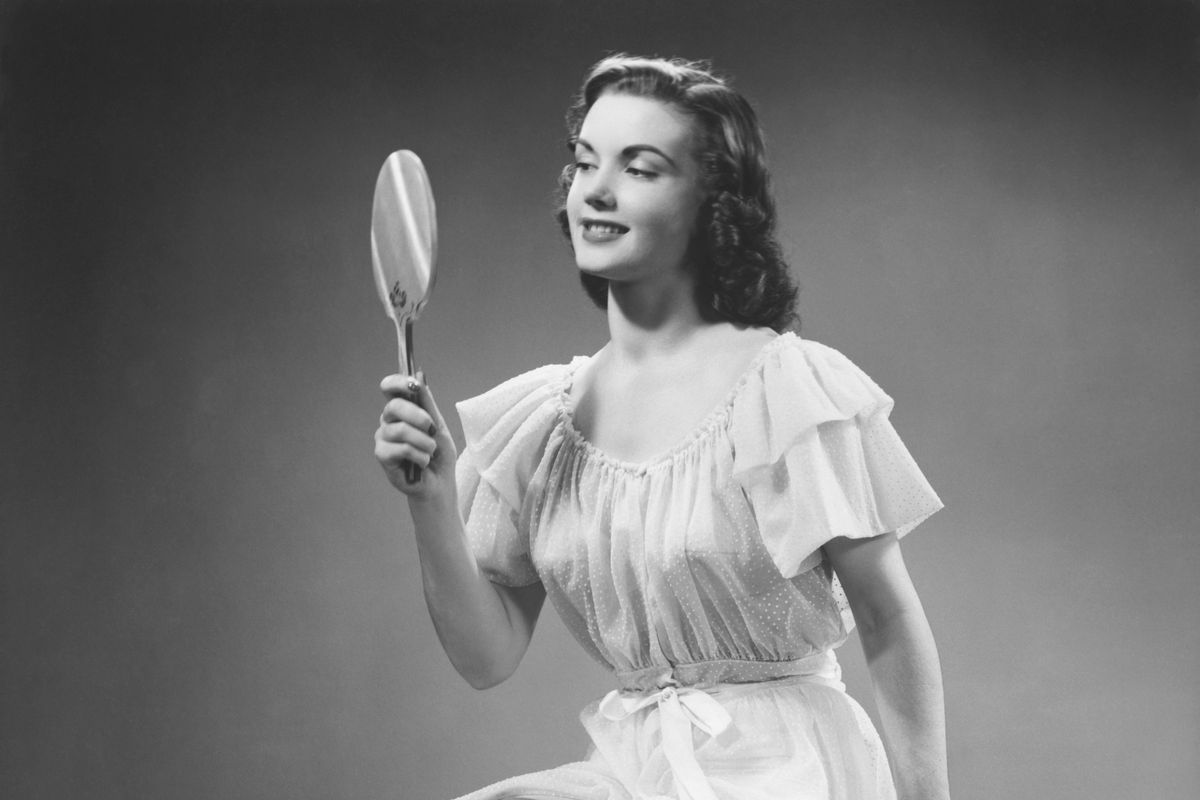
I first buzzed my hair at the end of summer in 2023. While studying queer theory and feminism, I became aware of how deeply entrenched my performance of conformity was through my appearance. I cut my long hair off. Then I dyed it Hot Cheeto Red. It got progressively shorter, going through different iterations of bleaching, until I had nothing to hide behind. With my hair buzzed centimeters from my scalp, I felt more beautiful, more me, than I ever had. It also marked a radical shift in how I was perceived.
It felt incredibly empowering to shave my head, like being the most honest and true version of myself. But shortly after, I went to a Halloween party as Troye Sivan’s sexy hyper-femme drag alter ego from the “One of Your Girls” music video, complete with a long blonde wig. I was told by a slew of straight male friends (including my ex) how hot I looked with hair. A fear that (I was ashamed to admit) had kept me from buzzing my hair for so long was now materializing: I was being seen as less desirable and attractive by a lot of people.
What happens when what you perceive as beauty draws you further from what mainstream society deems palatable, acceptable, or desirable?
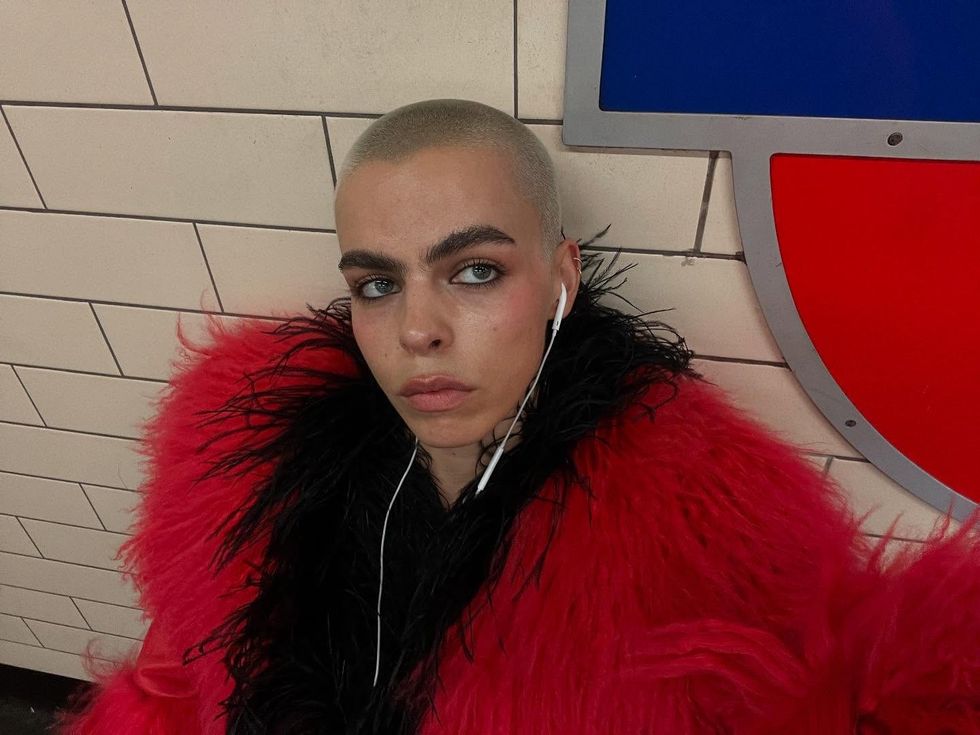
“I’ve completely ruled out the fact that love at first sight could be a thing. When people first see me, they see a unibrow,” says Sophia Hadjipanteli. A model, activist and founder of the #UnibrowMovement, Hadjipanteli has built her entire career around her distinct, dark unibrow. “Dating with a unibrow tells me everything I need to know before I even sit down. It’s not just about attraction, it’s about recognition—who sees me?”
Hadjipanteli draws a parallel between the act of dating her and what it says about a potential partner. “There is a confidence in knowing that they are choosing to be with someone who looks interesting,” she says. “That should apply for anyone who chooses to present their beauty in an unconventional way; it’s a huge part of the power that honesty in your personal presentation gives you.”
However, it’s not all empowering expressiveness at Dismantling Beauty Standards HQ. “Sometimes, I’ve thought about softening it…Especially with straight men, I’ve seen how fast curiosity turns into insecurity,” Hadjipanteli says . “One guy told me he wasn’t sure he could handle the attention I get. Imagine admitting that out loud to someone who has spent years unlearning shame?”
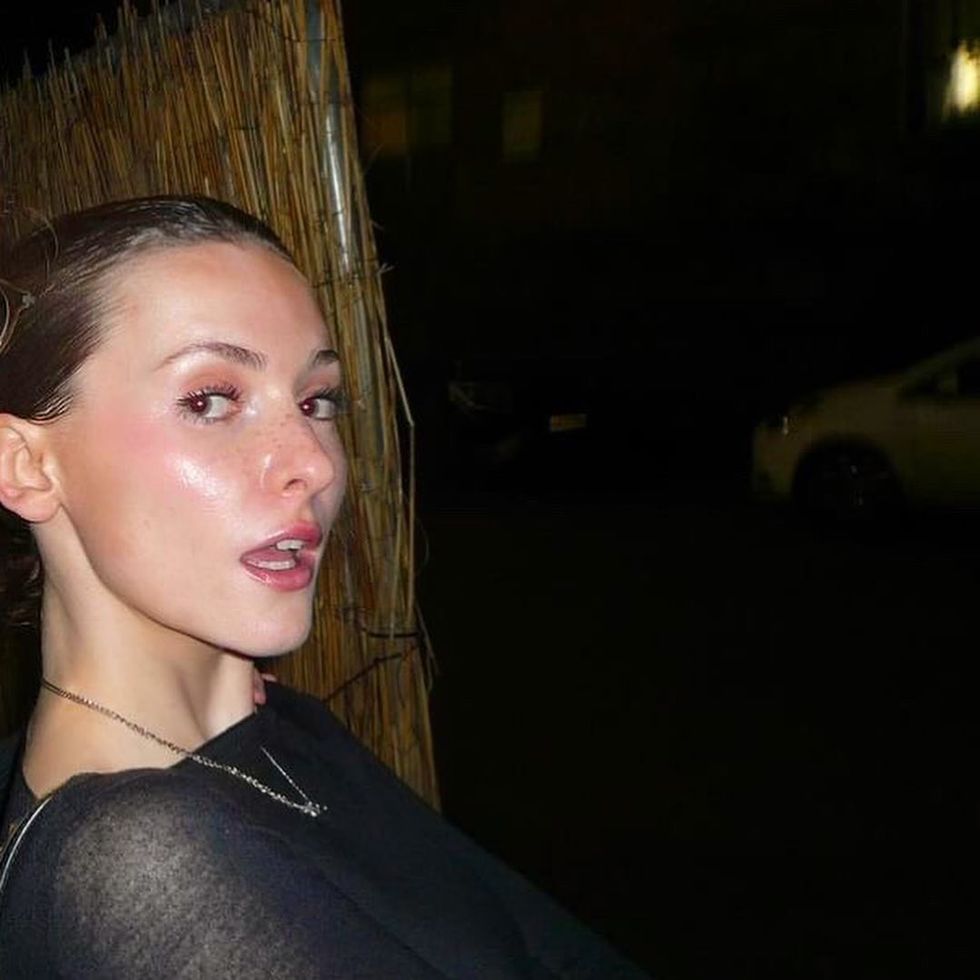
“I buzzed my hair off back in 2021 and—at least according to men—I've kept my hair ‘short’ ever since,” Amber tells me. For Amber, the link between her barnet and boys is blatant. “I was with a boyfriend at the time,” she says. “When I came back from the hairdressers, I would say his face dropped. He got used to it, but there was always an undercurrent that he'd prefer it if I didn't have it. Honest to god, I do wonder if he would have dumped me if I had long hair.” Bi-weekly stalks of his new girlfriend have seemed to substantiate her theory. “She's kind of everything I used to be. He wanted girly—he got it.”
“I never did that much dating while my hair was super short, but even when I've been in relationships, it's pretty clear that having short hair attracts a different type of man,” Amber shares. “It's going to be an ‘alternative’ guy.” However, it seems that the pretense of unorthodox attraction is more often part of a Soft Boi superficiality than a meaningful feminist gaze. “Guys I’ve dated who have often been all ‘your short hair is so hot’ have quickly changed their tune [as things progress],” she says. “It's like they enjoy the idea of short hair and what it connotes, but fundamentally find it hard to not want a typical girly-girl.”
Now, her hair is bob length. “I do miss the buzz cut and when I had it at a pixie length, but I'm hesitant to go back to it because I do tend to absorb the ideas around me, like,‘she looks a bit gay’ or‘she looks a bit masculine.’ It's not worth the inner turmoil, even though I like the aesthetic of it.”
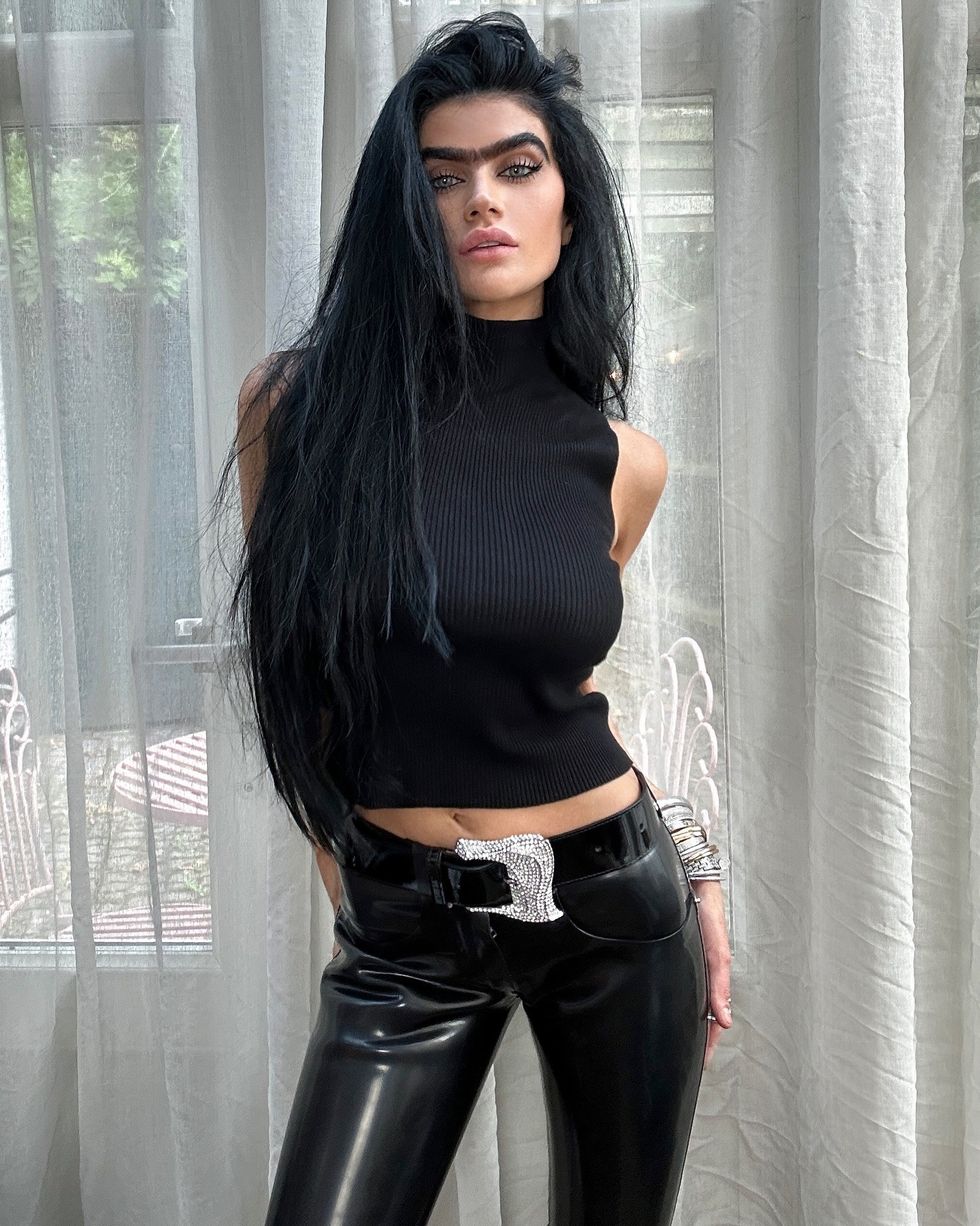
Refuting heteronormative beauty standards and being called gay as a result swings both ways, as James found out in his mid-twenties. Dressing as “preppy jock” throughout his teens and uni years, he started to experiment with his style and self-expression after moving to London. After discovering queer spaces, he felt comfortable to wear jewelry, dress in more feminine clothes, smudge on some eyeliner or paint his nails. This surface level shift indicated something far deeper, an unravelling of the restrictive gender binaries that had not only informed his presentation but also his personal identity. “I found this softness in myself and in my expression of care, of affection, in my interaction with the world” he says.
His ex-girlfriend did not feel the same way. “She would insinuate that this was some sort of phase for me, or let slip snarky half-jokes about me being gay,” he says. He reflects now on the symbolism of what she felt, what his new found femininity threatened to her. “Straying from normalization always engenders fear. How we choose to express ourselves can be freeing, but it also embodies the nuances and complexities, the uncontrollability of our true selves.”
While beauty is often said to be skin deep, choosing to present what feels beautiful to you goes far deeper than surface level. The paradox of self-expression is that what something represents on a societal level can feel completely different on an individual one. “Fundamentally, having shorter hair makes me feel more feminine,” Amber confides. Personally, I found that buzzing my hair has allowed me to explore femininity, sensuality and softness in a way that I previously felt too close to for comfort, finding suppressed expressions of my emotional identity surfacing with a newfound confidence in myself.
“Dating is harder when you’re not performing,” Sophia says, “But it also makes it easy to spot the ones who actually see you and want all of you. The truth is, I’d rather be ‘too much’ than ‘almost enough’ with anything I do in life, especially love. The ones who get it never treat me like I’m making a statement. They just get it—like I’m already speaking their language.”

